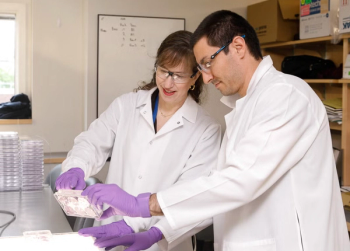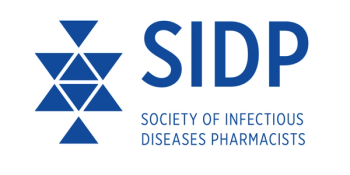
Further Babesiosis Biology, Pathogenicity Research Underway at Yale

Babesiosis, a tick-borne disease caused by Babesia parasites, is on the rise in the United States. The disease often presents with flu-like symptoms, but in some individuals, can progress to a more severe condition. Yet, despite the increasing significance of babesiosis in public health, there is limited understanding of the parasites’ biology, pathogenesis, and mechanism of virulence.
Building on research initially reported in 2018 by a team of scientists led by
This newly funded NIH research will be conducted in collaboration with Robert Molestina, PhD, at the American Type Culture Collection and Fatah Kashanchi, PhD, director of the Laboratory of Molecular Virology at George Mason University. Key members of the Ben Mamoun lab contributing to this project include
“This research underscores the power of collaborative science, where experts from different fields come together to advance our understanding of parasitic diseases and their impact on hosts,” Ben Mamoun said.
Babesia parasites are closely related to Plasmodium species, which cause malaria, another vector-borne parasitic infection responsible for hundreds of thousands of cases and deaths globally. “Both malaria and babesiosis parasites infect human red blood cells and share critical biochemical, metabolic and cellular processes that are crucial for their survival in these cells,” Ben Mamoun said. “The red blood cells' environment provides unique niche for pathogens, enabling them to partially evade the immune system.”
Research in Ben Mamoun’s lab revealed that Babesia parasites are unique among parasites of the Apicomplexa phylum due to their ability to produce vesicles, known as Babesia-derived vesicles. These vesicles are released into the cytoplasm of host cells and eventually make their way into the host’s bloodstream, carrying parasite-derived proteins and other parasite molecules that play a crucial role in parasites' survival in the host.
“By studying these vesicles, we hope to uncover how they contribute to parasites' survival and interaction with the host,” said Ben Mamoun. “The insights gained from this research could pave the way for new therapeutic approaches, not just for Babesia, but also for potentially other infectious agents, including malaria parasites. Specifically, identifying the proteins associated with these vesicles could provide new therapeutic targets for disrupting parasitic infection and transmission.”
Yale School of Medicine’s Department of Internal Medicine Section of Infectious Diseases engages in comprehensive and innovative patient care, research, and educational activities for a broad range of infectious diseases. Learn more at
Newsletter
Stay ahead of emerging infectious disease threats with expert insights and breaking research. Subscribe now to get updates delivered straight to your inbox.































































































































